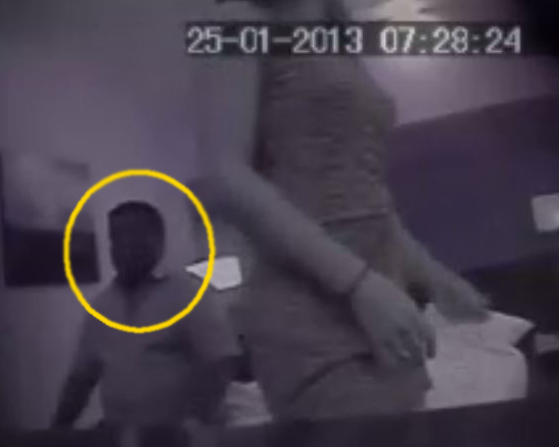With additional reporting by Ahmed Rilwan
The Elections Commission, in its ‘Final Report on Electoral Constituencies of 2014 Parliamentary Elections’ (Dhivehi), have formally announced the creation of eight new parliamentary constituencies for the upcoming 2014 parliamentary elections.
The change means the number of MPs elected to the country’s eighteenth parliament will consist of 85 elected members of parliament.
The Maldives’ current unicameral parliament consists of 77 MPs who were elected in May 2009, replacing the previous 50 member parliament following the ratification of the new constitution in August 2008.
According to the new report, an additional constituency has been created in Addu City, Haa Dhaalu Atoll, Noonu Atoll, Alif Dhaalu Atoll, Thaa Atoll and Gaaf Dhaalu Atoll while two new constituencies have been created in Capital Male’ City.
New Constituencies
According to the report, two administrative wards of Male’ City, Villimale and Hulhumale – which are geographically separate islands from Male Island – have now been declared as two separate constituencies.
From Haa Dhaalu Atoll, a new ‘Makunudhoo Constituency’ is formed to include the islands of Makunudhoo, Kumundhoo and Neykurendhoo. From Noonu Atoll, a new ‘Holhudhoo Constituency’ is formed to include the islands of Miladhoo, Holhudhoo and Magoodhoo.
From Alif Dhaalu Atoll, a new ‘Dhan’gethi Constituency’ is formed to include the islands of Dhidhoo, Mandhoo, Dhigurah, Dhan’gethi and Omadhoo.
From Thaa Atoll, a new constituency ‘Thaa Guraidhoo Constituency’ is formed to include islands of Guraidhoo, Gaadhiffushi and Dhiyamigili.
From Gaaf Dhaalu Atoll, the existing Thinadhoo Constituency is split into two new constituencies the ‘Thinadhoo North Constituency and the Thinadhoo South Constituency – following an increment of the island’s population within the past five years.
From Addu City, the existing Hulhu-Meedhoo Constituency was split into two new constituencies, the new ‘Hulhudhoo Constituency’ for the ward of Hulhudhoo and ‘Addu Meedhoo Constituency’ for the wards of Meedhoo and Maradhoo-Feydhoo of Addu City.
Naming of constituencies
Furthermore, several islands which constitutes to current constituencies in parliament have been switched to other constituencies to balance the population representation of each of the constituencies.
According to the Parliamentary Constituencies Act 2009, two parliamentary seats must be allotted for the first 5,000 people who are permanently registered in every single registered-population – that may or may not include more than one island to form the figure – and one additional parliamentary seat for every additional 5,000 people.
The law also requires the electoral constituencies to be formed based on the twenty-one administrative regions including Male’ as the primary registered-populations.
Elections Commission furthermore states that each constituency have been named after the island in the constituency that has the largest population.
However due to two islands in different atolls having the same name, the similarly named constituencies have now been named including the atoll of which the constituency belongs to.
For example, the report claimed, two constituencies, one in Kaafu Atoll and the other in Thaa Atoll, have a constituency named ‘Guraidhoo Constituency’.
To avoid any confusions, the constituencies have now been renamed to include the first Dhivehi letter of the atoll which the constituency belongs, thereby the Guraidhoo Constituency in Thaa Atoll is renamed “Thaa Guraidhoo Constituency” and the one in Kaafu Atoll is renamed as “Kaafu Guraidhoo Constituency”, the report stated.
Increased expenditure on MP’s pay
Following a salary revision after the parliamentary elections 2009 that saw the base salary of an MP raised to MVR 62,500 (US$ 4,053) and a further inclusion of an additional MVR 20,000 (US$ 1,297) as committee allowance, a Maldivian MP currently earns a total of MVR 82,500 (US$ 5,350) – a sum which is far more than many of the other developed countries.
The parliament therefore spends approximately MVR 6,352,500 (US$ 411,964.98) per month on remunerations of MPs meaning approximately MVR 76.23 million (US$ 4.94 million) is spent on wages per year.
The new increment on number of MPs could mean that approximately MVR 7,012,500 (US$ 454,766.54) would be spent per month as salaries for 85 MPs – an increment of MVR 660,000 (US$ 42,801) spent on MP’s wages.
This means MVR 84.15 million (US$ 5.45 million) would be spent per year – an increment of MVR 7.92 million (US$ 513,612) per year.
Previously, MPs’ decision to increase their own remunerations – including a back pay of committee allowances – were met by harsh criticism from both the public and local NGO’s leading to public protests.
Aiman Rasheed of local NGO, Transparency Maldives – one of the key local NGO’s who expressed concerns over the pay hike – told Minivan News at the time that the pay rise was symptomatic of “inherent problems in the entire system.”
“With such a high budget deficit and high inflation, we do not accept that the hike [in remuneration] is at all responsible,” he said at the time.
The matter resulted in a Civil Court case which was later dismissed.
In order to tackle the increased expenditure due to expansion of the parliamentary composition, government aligned Maldivian Development Alliance MP Ahmed ‘Aims’ Amir proposed a constitutional amendment that would prevent any further increase of parliament’s size.
However, the bill still remains pending in parliament.
Likes (1)Dislikes
(1)Dislikes (0)
(0) 